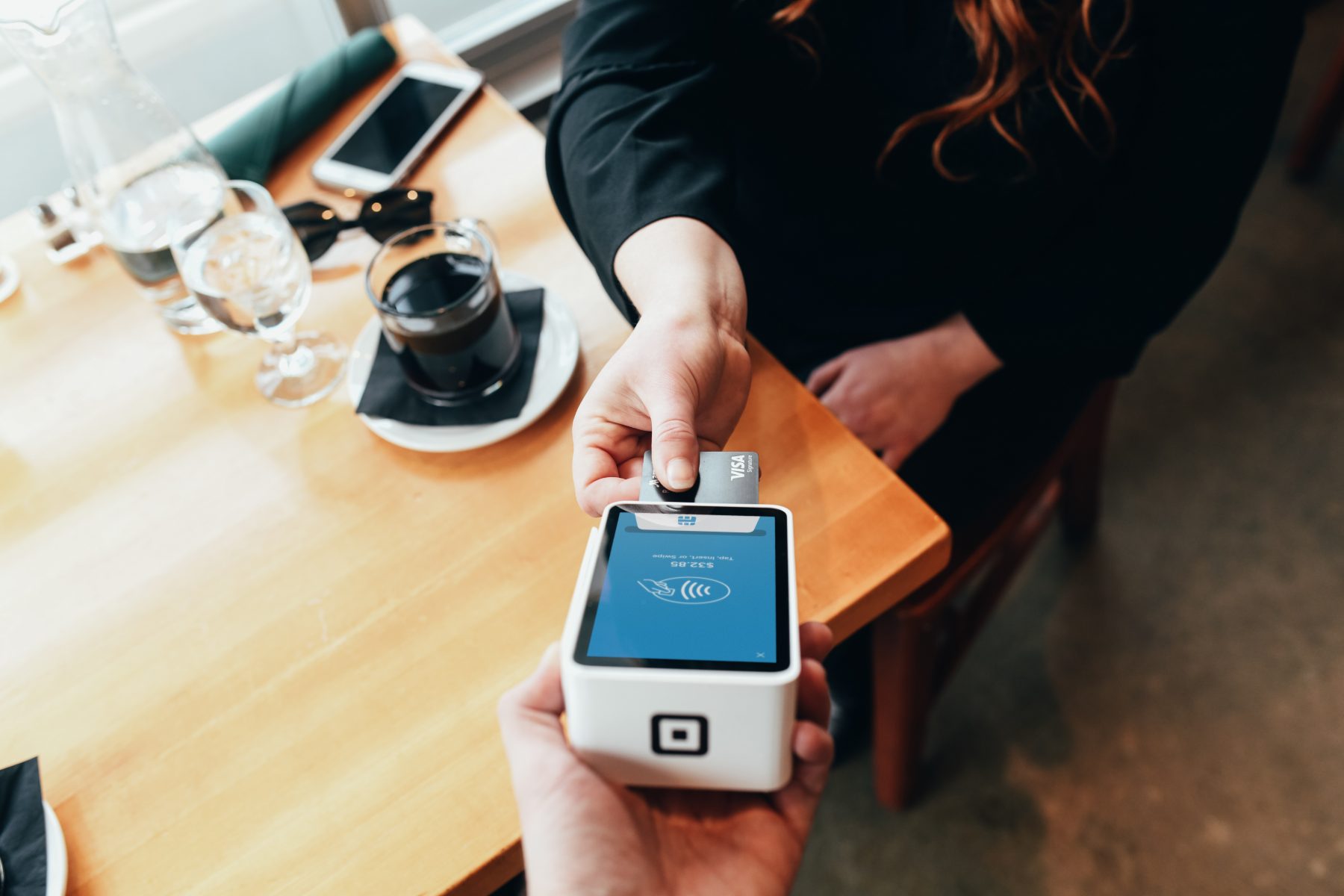What Marketplace Sellers Need to Know about Sales Tax Nexus
Are you an Amazon, Etsy, eBay, or other type of marketplace seller? Sales tax is probably the last thing you want to think about. However, the past couple of years have been unprecedented in terms of sales tax law changes that impact online sellers and it’s crucial to the health of your business that you engage.
The whirlwind began after the U.S. Supreme Court handed down its decision in South Dakota v. Wayfair in June 2018. This decision changed the game for online sellers. The Wayfair decision is all about nexus. Nexus is the level of connection between your business and the state that obligates you to register and collect sales tax.
The Supreme Court ruled that physical presence is no longer the main requirement for creating nexus, that it can also be created when a seller’s sales into a state exceed certain economic thresholds. What didn’t change is that physical presence, such as due to inventory or employees in the state, still creates nexus as it always has, without regard to the new economic thresholds.
A persistent challenge you’ll run into as an online marketplace seller is that states do not have one shared definition of nexus and the rules and definitions change constantly. However, there is a series of concrete steps marketplace sellers should take to evaluate nexus and their sales tax obligations.
Don’t let sales tax hold you back from getting your products out into the world! Here are the key things you need to know about sales tax nexus so you can move forward with confidence and stay compliant.
Step One: Evaluate Physical Nexus
With the spotlight on economic nexus following the Wayfair decision, a lot of businesses have put blinders on to other nexus-creating activities they perform. You can’t let physical nexus-creating activities fall to the wayside and purely focus on economic thresholds.
Because here’s the thing…
The economic nexus thresholds are not relevant in states where you have physical presence. The Wayfair decision did not alter states’ longstanding physical presence rules.
The core elements of physical nexus are people and property. Evaluating physical nexus involves asking questions like:
- Where do you have employees working on your behalf – either temporarily or permanently?
- Where do you have a permanent place of business?
- Do you have a temporary place of business like a trade show booth?
Property is a sticking point for online sellers, particularly Amazon FBA sellers. Company-owned inventory in a third-party warehouse is considered physical presence. Amazon FBA sellers must monitor their sales to track where Amazon is sending their inventory.
There may be some states that will not require marketplace sellers that sell exclusively on a marketplace that is collecting tax to register for sales tax due to the inventory – but this could still create requirements for income tax, gross receipts tax, or business licenses.

Economic Nexus – the New Norm
If you don’t have physical presence in any of the states you sell to, now you can look at economic nexus. There are five key considerations for the way states have implemented economic nexus legislation: the thresholds, the type of sales included, if its an “OR” or “AND” test, the sales periods to include, and when you need to register once you exceed a threshold.
1. Thresholds
Most states use South Dakota’s economic nexus threshold that was scrutinized under the Wayfair case: $100,000 or 200 or more separate transactions. However, there are a handful of states that have alternative thresholds such as Alabama with $250,000, California with $500,000, and New York with $500,00 and 100 sales. Several states such as Colorado, North Dakota, and Washington removed their transaction count thresholds, leaving only the dollar amount. This type of change is worth keeping your eyes out for.
2. Includable Sales
Next, you have to understand which type of sales are included towards the threshold. The majority of states use gross sales as their measure, which means all sales, not just taxable sales. Some states use retail sales, which includes taxable and exempt sales but excludes sales for resale in the calculation towards the threshold. Others follow a taxable sales rule, which excludes exempt sales whether they’re entity, usage, or product based. If you make sales for resale or sell to exempt organizations, you MUST get the appropriate exemption certificates. If you don’t have the exemption certificates, then the sales are considered taxable.
3. OR vs. AND Test
All states except Connecticut and New York use an “OR” test as in “$100,000 OR 200 transactions,” meaning if a seller exceeds either the sales or transaction threshold, they must register. Connecticut and New York use an “AND” test for which sellers must satisfy both thresholds before being required to register and collect tax. Massachusetts had an AND test prior to October 1, 2019 when it lowered its threshold from $500,000 AND 100 transactions (with cookie nexus) to the more traditional $100,000 with gross sales.
4. Sales Periods to Include
The next step is figuring out if you exceed the thresholds in the time period set forth by the states. Almost every state uses the previous or current calendar year as the measurement date. There are some states that don’t use this standard rule, so pay close attention to each state’s language. If you don’t exceed the threshold prior to the effective date of a state’s economic nexus legislation, you are required to register once you exceed the threshold. You are not liable for tax on sales prior to meeting the threshold. If you drop below the threshold in a future year, you can cease your registration – but you need to continue to monitor your activity.
5. When to Register
The final question is how quickly a seller must register after meeting a threshold. Unfortunately, most states require registration on the next transaction. This means you need to closely monitor your sales activity to ensure you register in a timely manner. Several states have recognized this challenge and set a delayed registration date once you meet the threshold. For example, in North Carolina you must register within 60 days after meeting the threshold.
All of these five key considerations are laid out for each state on our Economic Nexus State Guide. This chart also includes links to in-depth information about each state’s economic nexus rules.

Bringing Marketplace Facilitators into the Mix
The second wave of sales tax nexus legislation following the Wayfair decision you need to know is marketplace nexus or marketplace facilitator collection legislation.
In simple terms, this type of legislation requires an online marketplace facilitator or provider, such as Amazon, Etsy, or eBay, to collect sales tax on behalf of its sellers if the sales it facilitates or makes on its own behalf exceed the state’s economic nexus threshold.
Marketplace legislation shifts the tax collection burden from small sellers to the marketplace facilitator and simplifies collection as tax is collected from one entity instead of thousands of smaller sellers. Some states are implementing a certification process where the marketplace will provide proof that they are collecting the tax that can be provided to marketplace sellers. If the marketplace is not collecting, the seller can still be responsible for the tax.
The key requirement marketplace sellers need to watch for on a state by state basis is whether sales made through a marketplace are included in the seller’s individual threshold calculation if sales are also made through other channels, like your own website. Most states require you to include marketplace sales – even if the marketplace facilitator is collecting tax on those sales – if you also sell direct to customers using other means.
For example, let’s say you’re making sales to Idaho customers using Amazon and your own website. In the past year, you’ve made $73,000 in Amazon marketplace sales and $52,000 in sales made directly from your website. Idaho’s economic threshold for online sellers and marketplace facilitators is $100,000 in the previous or current calendar year. Idaho’s rule specifies that sellers use gross sales and that marketplace sales must be included towards the threshold for individual sellers.
Since you have to include your marketplace sales towards your threshold calculation, your gross sales will amount to $125,000. This exceeds the Idaho economic nexus threshold of $100,000 and you would be required to register to collect sales tax on your direct sales into the state (Amazon is already taking care of collection on your marketplace sales).

Sales Tax Filing Requirements for Marketplace Sellers
In states where marketplace sellers are not required to include marketplace sales towards their calculation of economic nexus, it raises the question of whether or not these sellers are required to file sales tax returns for marketplace sales.
States with marketplace facilitator legislation approach this issue in different ways.
In several states, if you are a 100% marketplace seller (you don’t make any direct sales to customers), you are not required to register with the state or file returns even if you exceed the economic nexus threshold.
Other states take the approach that 100% marketplace sellers do need to register but have specialized instructions when it comes to registering and filling out returns. For example, Connecticut has a “new marketplace seller” check box on their registration application. On Connecticut returns, marketplace sellers should include their marketplace sales in their gross sales total, but then deduct them on the ‘sale for resale’ line of the return.

Piecing Together Compliance for Marketplace Sellers
Rest assured, all of the new requirements are enough to make your head spin. Florida, Kansas, and Missouri are the only states yet to enact legislation for marketplace facilitators. Louisiana and Mississippi passed legislation just days before the July 1, 2020 effective date. Tennessee’s marketplace facilitation will be effective October 1, 2020. Marketplace nexus rules are widespread and here to stay.
If you’re just starting to get a handle on marketplace nexus requirements for yourself or even a client, take it slow. Break down each state requirement a piece at time, then start putting them together to see your bigger picture of sales tax compliance.
Here are some guiding questions to start piecing everything together: How does your combination of marketplace and direct sales compare to the state threshold? Are you required to include your marketplace sales towards the threshold? Do you need to register or file returns, or will the facilitator handle that? How will you track your sales going forward to know if you exceed a threshold?
For a handy chart to help you understand each state’s economic nexus rules, check out our Economic Nexus State Guide. For a broader look at which states have other types of remote seller nexus, including marketplace facilitator rules, visit our Remote Seller Nexus Chart.
The Streamlined Sales Tax State and Local Advisory Committee (SLAC) Marketplace Workgroup with input from the Business Advisory Committee (BAC) has developed charts for marketplace sellers and marketplace facilitators related to the compliance provisions that cover the Streamlined states. Additional work is ongoing to develop Disclosed Practices on some of the more nuanced rules.